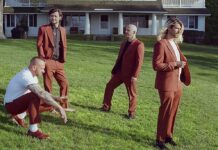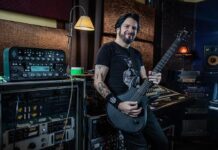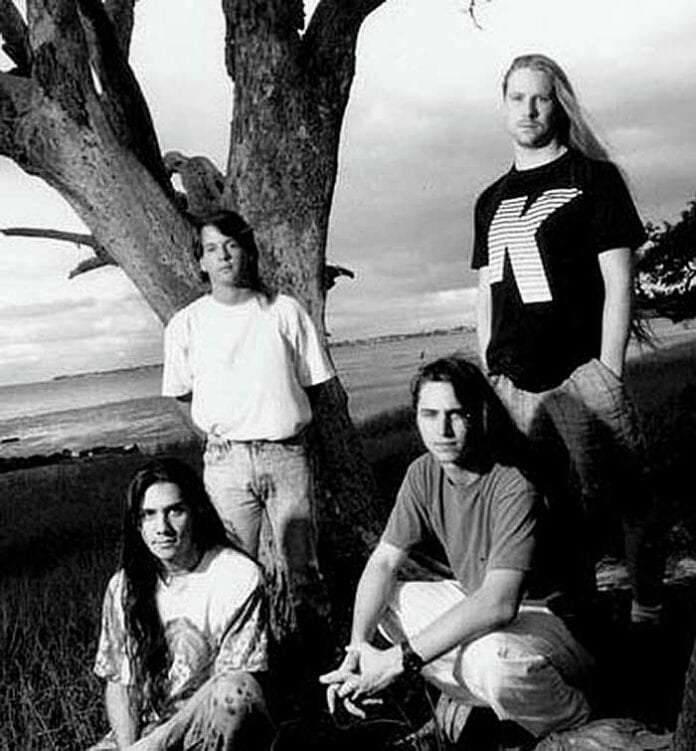
BY STEPHANIE JENSEN
“This band was ahead of their time.”
“This band changed metal.”
“This band led the groundwork for a new breed of metal bands.”
We use these sentences to describe a myriad of bands. But these examples apply to Cynic more strongly than any other band.
In 1993, Cynic’s masterpiece debut album Focus proved that metal can reach new horizons, that metal can perfectly fuse with other genres such as jazz to create a mind-blowing concoction.
Cynic’s power duo—guitarist Paul Masvidal and drummer Sean Reinert—helped revolutionize the band Death by joining frontman and guitarist Chuck Schuldiner and bassist Steve Di Giorgio on the groundbreaking Human album. Masvidal and Reinert later left to focus on Cynic, and even with their incredible contributions to Death, that was the best decision they made.
Today, Cynic hails as one of the most influential metal bands. Modern greats cite Cynic as one of their influences. These bands range from Decrepit Birth to Scale the Summit to Obscura. The bands Veil of Maya and Textures took their band names from the corresponding Cynic song titles.
However, Cynic’s music career hasn’t been the smoothest. They faced many breakups, lineup changes, and other hardships.
CELESTIAL VOYAGE: A HISTORY
Cynic began at the height of the Florida death metal scene, and the members were integral parts of the local Florida metal scene. Cynic was formed in Miami, Florida in 1987 by Paul Masvidal and Sean Reinert. Originally, Masvidal only played guitar, but he started doing vocals after their first 1988 demo. During this time, second guitarist Jason Gobel and bassist Tony Choy also joined.
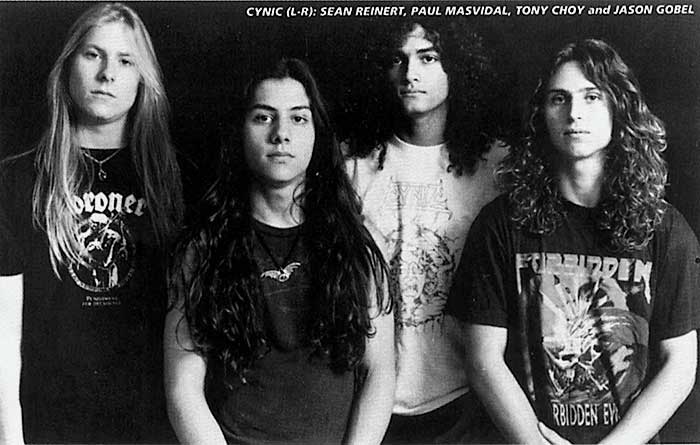
Cynic signed with Roadrunner Records in 1991, but they didn’t release their debut Focus until 1993. Reinert and Masvidal were touring with Death in support of the Human album, and other issues occurred during this time. Masvidal’s and Reinert’s gear was confiscated and held by a UK promoter for six months. This was due to financial trouble and not paying the final payment for the tour bus, and the promoter held the gear as collateral. In addition, Hurricane Andrew destroyed Gobel’s home and the band’s rehearsal space. This delayed the album’s recording by several more months.
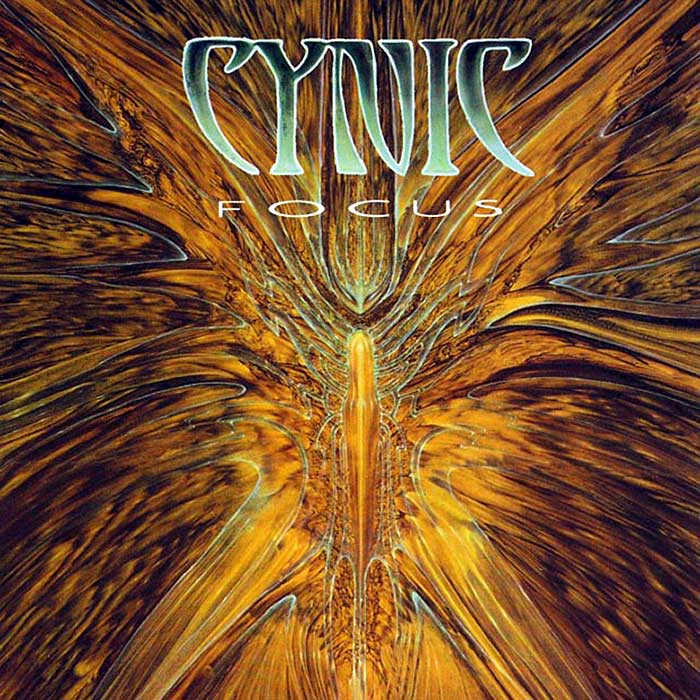
Choy left the band during this time to join Atheist. He was replaced with current bassist Sean Malone. Malone, a local jazz musician, was an assistant studio engineer where the band was recording Focus. Tony Teegarden was also brought on to perform the harsh vocals, while Masvidal performed the clean vocals with a vocoder. Masvidal was supposed to also perform the harsh vocals, but didn’t because he was in danger of losing his voice at the time.
Their legendary debut, Focus, was finally released on September 14, 1993.
Focus is an album that has been extremely influential but didn’t receive its true recognition until years later. Death metal fans were accustomed to the hard-hitting and brutal music of the genre. Cynic’s jazzy and experimental sound was completely new, making the album hard to market. Therefore, the band didn’t receive a lot of support.
As time went on, the album became iconic. Saying Cynic was ahead of its time is an understatement. The album’s heaviness mixed with jazz fusion elements gives the album a unique and exploratory feel. The songs had the complexity and musicianship rarely seen in death metal at the time. Reinert’s drumming on songs such as “Sentiment” features distinct accents and fills, while Masvidal’s and Gobel’s solos in songs such as “How Could I” are both the work of inhuman talent and creative genius. Malone’s serpentine fretless bass fuses perfectly with the rest of the elements, and his perfect playing rings high in songs such as “I’m But a Wave To…” While every player brought their best to the recording, the unique spaciness of the album meshes every part together, providing an individualistic atmosphere.
With all of the clashing influences, intricate musicianship, and crazy effects, the album still makes sense. The playing is tight, the songwriting is extremely well done, and every player stands out.
Above all, Focus has a quality that many albums don’t have—soul. You can tell each member poured their heart and soul into this album. From each individual song to the album as a whole, Focus has a life of its own.
Cynic didn’t release another new album until 15 years later. That’s because the group endured an extremely long disbandment due to “creative and personal differences.” The lack of support for Focus was also a main reason for the band’s first breakup, and the members started focusing on other side-projects.
The band reformed in 2006 to play several shows for the following couple of years. One of which was Wacken 2008.
In 2008, Cynic also released their second album, Traced in Air.
Let’s go back in time to Traced in Air’s release. A lot changed in the 15 years after releasing their legendary debut. Cynic is no longer looked at as the weird jazz fusion death metal nerds touring with brutal death metal bands. Focus is now acclaimed as a highly influential album, worshipped by the new era of death metal and technical death metal musicians and fans. That’s why Cynic received immense praise when reforming.
However, it’s difficult to create a follow-up to such a genius work of art like Focus. The only way they could create an equally influential follow-up album is by breaking even more musical barriers. And they did so with Traced in Air.
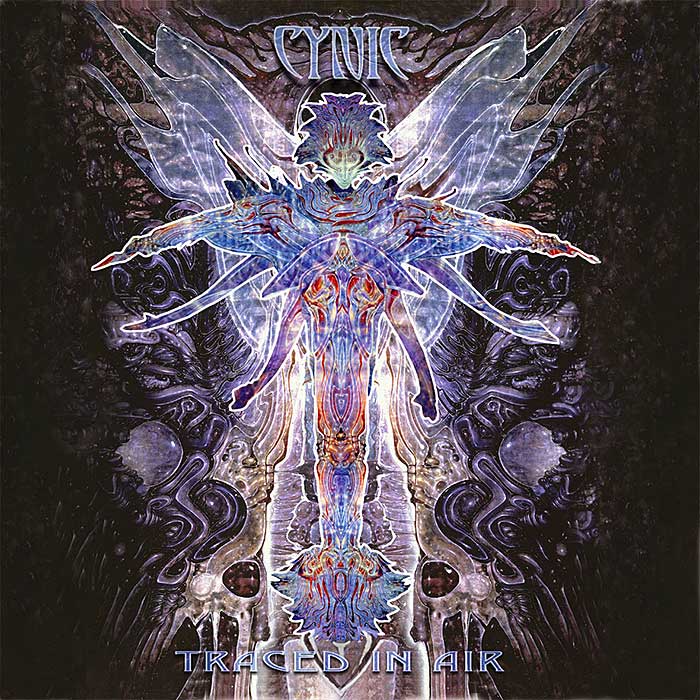
Cynic captured the experimental and progressive nature of Focus and pinpointed this style with Traced in Air. Every aspect about this album proves Cynic’s evolution into a more matured band. Instead of complex jazz influenced solos, Masvidal graces us with extremely catchy riffs that still blend in with the refined styles of their music. Speaking of Masvidal, he ditched the vocoder and let his beautiful voice ring throughout the whole album, though he does throw in a nifty effect every now and then.
Reinert’s drumming is just as intense. His fills and accents are unpredictable and keep you at the edge of your seat. While Malone’s bass gets lost in the mix (the Traced in Air Remixed fixes this), he still comes in occasionally with his beautifully toned bass that ties everything in perfectly.
For this album, they recruited guitarist and harsh vocalist Tymon Kruidenier, and he was a superb addition for this album. His guitar work is the ideal experimental stylings needed for this album, while his harsh vocals add an extra punch.
Other elements of the album add to the magic only Traced in Air holds. For example, Amy Correia’s vocals in the beginning of “King of Those Who Know” opens up the beautiful melodies for the track that clash with loud guitars and Kruidenier’s growls.
Cynic toured heavily in support of Traced in Air. They also recruited touring bassist Robin Zielhorst. In 2010, they released an EP Re-Traced. This EP features four songs from Traced in Air—“Space,” “King,” “Evolutionary,” and “Integral”—with different production and reinvented tracks consisting of various influences. The band also included an unreleased track, “Wheels Within Wheels,” on the EP.
“Wheels Within Wheels” follows the direction the band is embarking on. They’re ditching the crazy effects and toning down the brutality, focusing on their unique musical and songwriting talents. This song in particular highlights everything amazing about this band—Masvidal’s engaging vocal performance and catchy riffing, Malone’s bass ringing in like waves, and Reinert’s near flawless drum performance.
In 2010, Kruidenier and Zielhorst left Cynic. The main reason being Kruidenier and Zielhorst live in the Netherlands and Reinert and Masvidal live in California and the location difference was becoming difficult.
In 2011, Cynic released the EP Carbon-Based Anatomy. This EP further pushes out the traditional metal influences and highlights every aspect that makes Cynic’s music magical. It’s a short EP, but each song is memorable. From the title track’s distinguishable bass lines and riffs to the catchiness of “Box Up My Bones,” Cynic continues to define a new breed of progressive music.
Cynic also toured in support of this EP, recruiting ex-The Faceless bassist Brandon Giffin and guitarist/harsh vocalist Max Phelps.
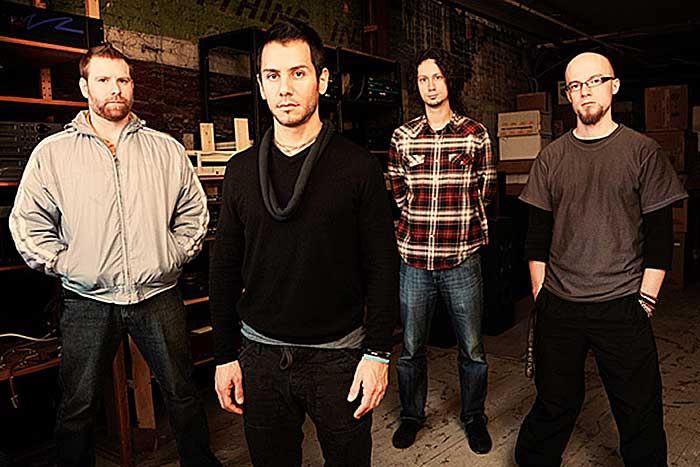
In 2014, Cynic released their third full-length album Kindly Bent to Free Us.
While Kindly Bent to Free Us isn’t as memorable as their previous two albums, it still holds a special place in Cynic’s discography. Kindly Bent to Free Us takes some of the jazzy aspects of the band and mixes it with the power Cynic always held. This record starts off strong with “True Hallucination Speak,” where progressive riffing and thunderous bass clash with Masvidal’s calm singing voice, perfectly setting the tone for the rest of the album. The title track “Kindly Bent to Free Us” captures their evolution into a more progressive band, while still holding the strength of their metal influences, and “Holy Fallout” holds the catchiness of the songwriting while still encompassing complex musicianship.
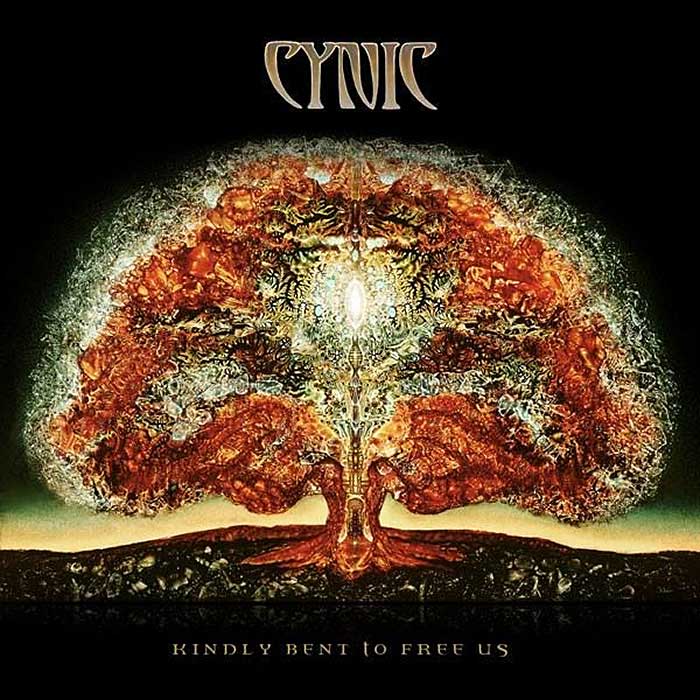
In 2015, rumors of disbandment started occurring again. Cynic performed at Germany’s Euroblast Festival with Trioscapes drummer Matt Lynch instead of Reinert. While Reinert technically left Cynic in 2015, there were still legal issues to be addressed. And in 2017, Reinert announced his departure from Cynic.
Cynic has been in talks of a new album and released the song “Humanoid” in 2018.
This taste into new music leaves fans craving for more. “Humanoid” superbly combines Cynic’s evolution into their current sound while touching back on their experimental side from Focus. Cynic continues to forego the harsh vocals, focusing on Masvidal’s organic singing. However, we still hear the jazz solos, robotic effects, and prominent bass that all Cynic fans can recognize from the early days.
While Cynic fans are heartbroken about Reinert’s departure, the band did a great job in choosing Lynch as a replacement. Lynch still has Reinert’s advanced and unpredictable drumming style and adds a new, harder element in Cynic’s percussion line.
On September 27, 2019, Cynic will rerelease a remixed and remastered version of their second full-length Traced in Air. This album is remixed by Periphery’s Adam “Nolly” Getgood and is remastered by Ermin Hamidovic. The remix also features new bass tracks by Sean Malone and all harsh vocals are removed from the album.

INTEGRAL BIRTH: THE BANDS THAT SPAWNED FROM CYNIC
Cynic holds some of the best musicians in all of metal and their past lineups were equally as impressive. That’s why it’s no surprise that so many bands and other collaborations formed from Cynic. Here are a few gems from this category.
AEON SPOKE
After Cynic’s first disbandment, Masvidal and Reinert formed the alternative rock band Aeon Spoke. They released two albums with this project—2004’s Above the Buried City and 2007’s self-titled Aeon Spoke. Aeon Spoke received a decent amount of success. “I’ve Seen Those Eyes” appeared in the film Cry Wolf, “Damaged” appeared on the TV show Smallville, and “Transform” appeared on the TV show One Tree Hill.
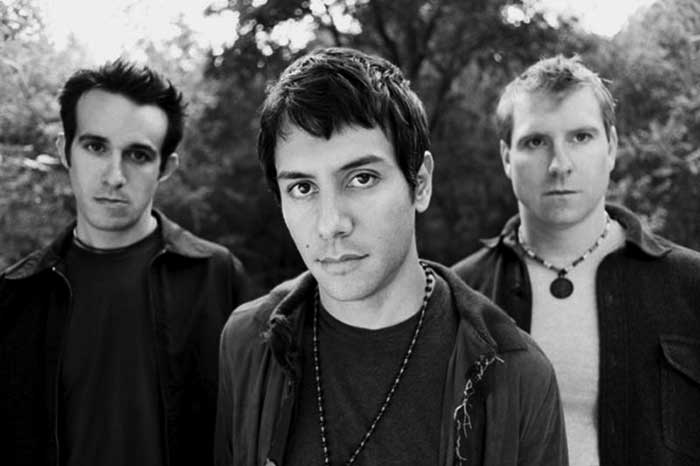
Aeon Spoke is unlike anything else we’ve heard from Masvidal or Reinert. They’re taking their unique musicianship and applying it to radio-friendly alternative rock. The result is an interesting sound, and it definitely works. This is why Cynic fans fell in love with this band and so did an even wider audience.
GORDIAN KNOT
Gordian Knot is the child and genius work of Cynic bassist Sean Malone. Gordian Knot welcomed a revolving door of musicians, including Bill Bruford of Yes and King Crimson, Steve Hackett of Genesis, Jim Matheos of Fate’s Warning, and Ron Jarzombek of Watchtower, Blotted Science, and Spastic Ink, among other notable musicians.
Cynic musicians are also featured in Gordian Knot—Reinert played drums on the debut self-titled album and the second album Emergent, while Masvidal did some session work on Emergent and Jason Gobel also played guitars on Emergent.
With all of these musical geniuses in one band, Gordian Knot can be described as nothing short of godly. The band combines progressive elements with a rock background. However, each virtuoso brings their best to the band, resulting in a completely creative sound. Gordian Knot is both beautiful and heavy, attracting a myriad of different music fans.
MASVIDAL
In 2019, Paul Masvidal released his solo project, simply titled Masvidal. He released the first album for this project, Mythical, on May 31, 2019. We can expect a trilogy of records titled Mythical Human Vessel from this project.
A major aspect of this album is the use of isochronic tones. These tones were created by Dr. Stephane Pigeon, which uses sound therapy technology to increase levels of serotonin in the brain. The result is something we’ve never heard from Masvidal before. While the effects and tones are still present, we hear Masvidal in the most organic form possible—just his voice with an acoustic guitar. This solo project proves Masvidal is completely broken off from metal. However, that no longer matters. Mythical is such a stirring album and each song stands out. Listeners can also sense the effects of the isochronic tones, feeling refreshed and calm when hearing this album. It’s truly a masterpiece!
PORTAL
Portal (not to be confused with the Australian band of the same name) was a band formed by Masvidal, Gobel, and Reinert. They added vocalist Aruna Adams and bassist Chris Kringel to the lineup, but the band was very short-lived. However, we do have access to what the band created with “The Portal Tapes” that exists under the Cynic name.
It would have been amazing if these virtuoso musicians continued Portal, as the band contains the prevailing jazzy elements of Cynic but with Adams’ haunting vocals added to the mix. However, Portal goes a step further in the ambient direction and away from metal. The result is a sound that’s almost meditative and melancholic while still holding the Cynic members’ progressive style.









